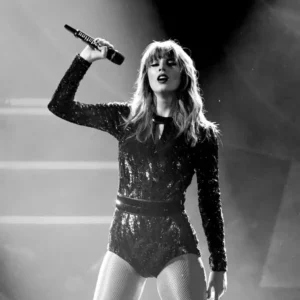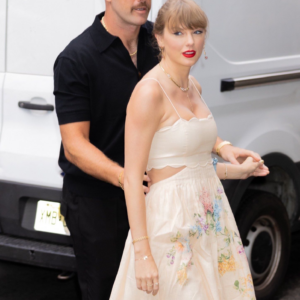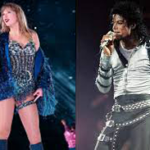In a recent uproar among basketball enthusiasts and WNBA fans, Caitlin Clark’s salary has become a hot-button issue, sparking a significant debate about compensation within women’s sports. Clark, a rising star in the world of women’s basketball and one of the most recognizable names in collegiate sports, has attracted considerable attention not just for her impressive skills on the court but for the disparity between her collegiate achievements and her professional earnings.
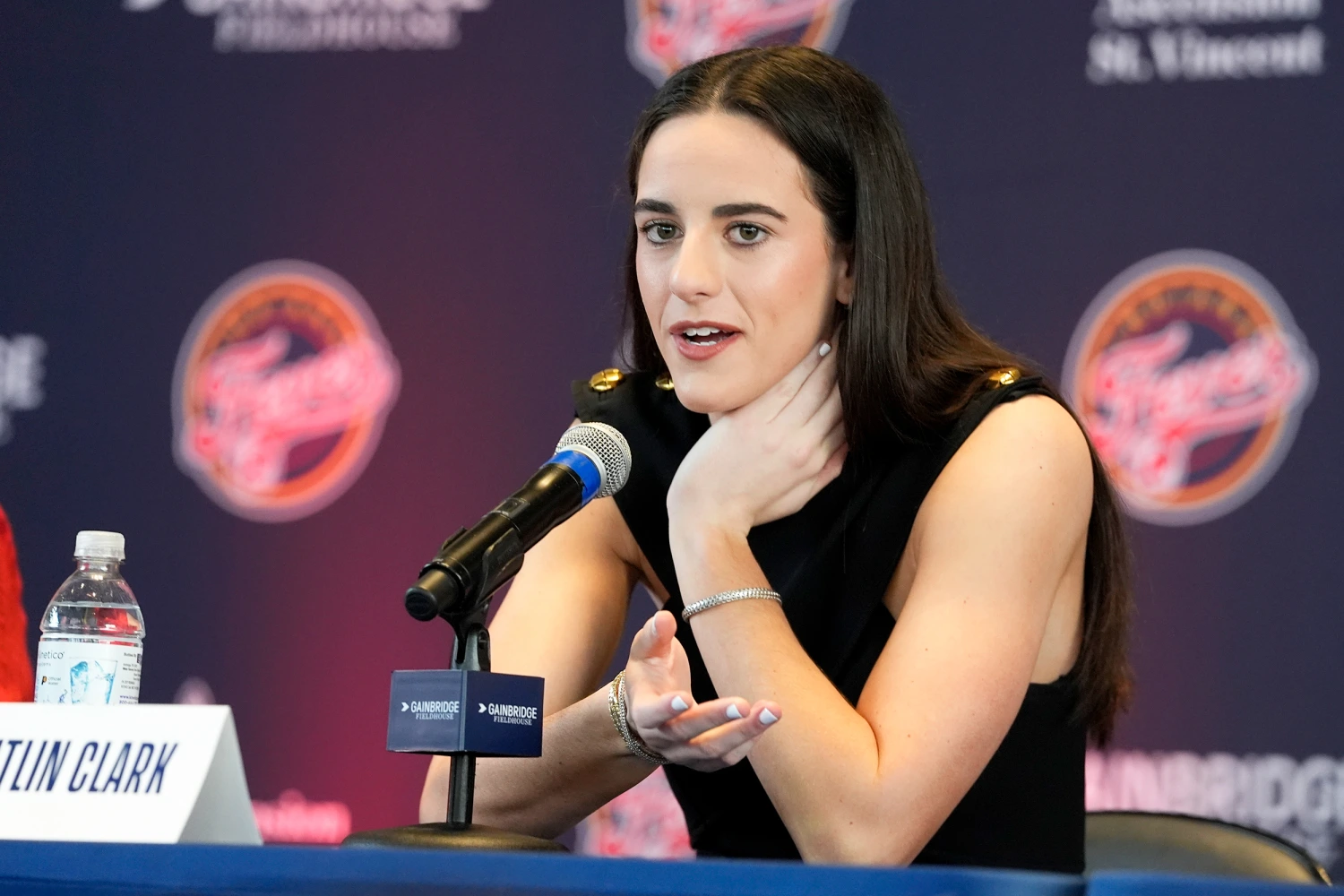
The Discrepancy in Pay
Caitlin Clark, the standout guard for the University of Iowa, has garnered widespread acclaim for her performances in college basketball. Known for her exceptional skills and leadership, Clark has been a focal point of the sport, capturing the attention of both fans and media. However, as she transitions from college to the professional league, the topic of her salary has ignited a debate about the broader issues of pay equity in women’s sports.
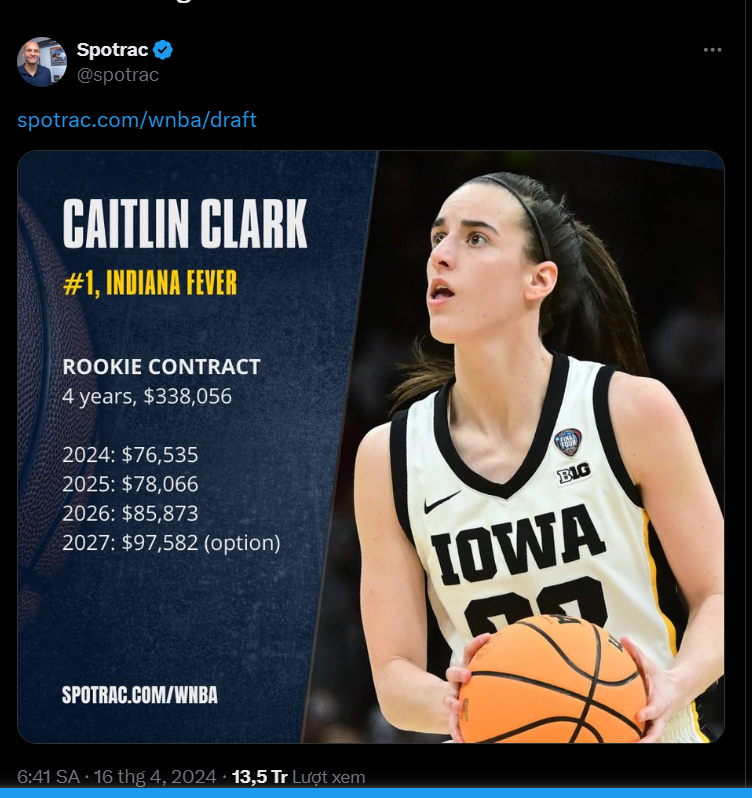
Reports indicate that Clark’s initial salary in the WNBA, while competitive, does not reflect the level of financial support and compensation often seen in other major sports leagues. Despite her high profile and significant contributions to the sport, WNBA players, including Clark, face a stark contrast in compensation compared to their male counterparts in the NBA.
Fans’ Reactions
The reaction from WNBA fans has been swift and vocal. Social media platforms have been abuzz with discussions and outrage over what many perceive as an unjust discrepancy in pay. Fans have expressed their frustration, questioning why a player of Clark’s caliber and popularity does not receive a salary that matches her impact on the game.
“Where have you been?” has become a rallying cry among supporters, highlighting the long-standing issue of gender inequality in sports. Fans argue that Clark’s salary should be a reflection of her star power and the attention she brings to the league, rather than a mere entry-level figure that does not align with her marketability and influence.
The Broader Context of Pay Inequality
Caitlin Clark’s situation shines a spotlight on the broader issue of pay inequality in women’s sports. The disparity between male and female athletes’ earnings is a well-documented issue, with many female athletes receiving significantly lower salaries despite their achievements and popularity.
The WNBA, while making strides in visibility and support, still faces challenges related to compensation and financial backing. The league has historically struggled with securing equal pay and sponsorship deals, a situation that affects not just Clark but many other talented female athletes who find themselves underpaid relative to their contributions to the sport.
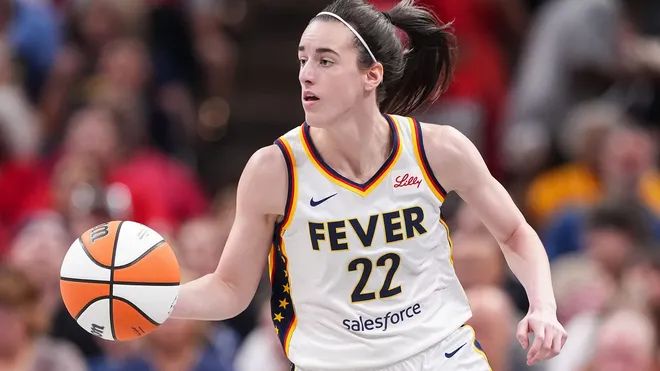
The Future for Caitlin Clark and WNBA
As Caitlin Clark continues to make waves in the world of basketball, her salary and the ensuing discussion represent a crucial moment in the ongoing fight for gender equality in sports. While the immediate focus is on addressing the pay disparity, there is also a larger conversation about the value placed on women’s sports and the support needed to elevate female athletes to the same level of recognition and compensation as their male counterparts.
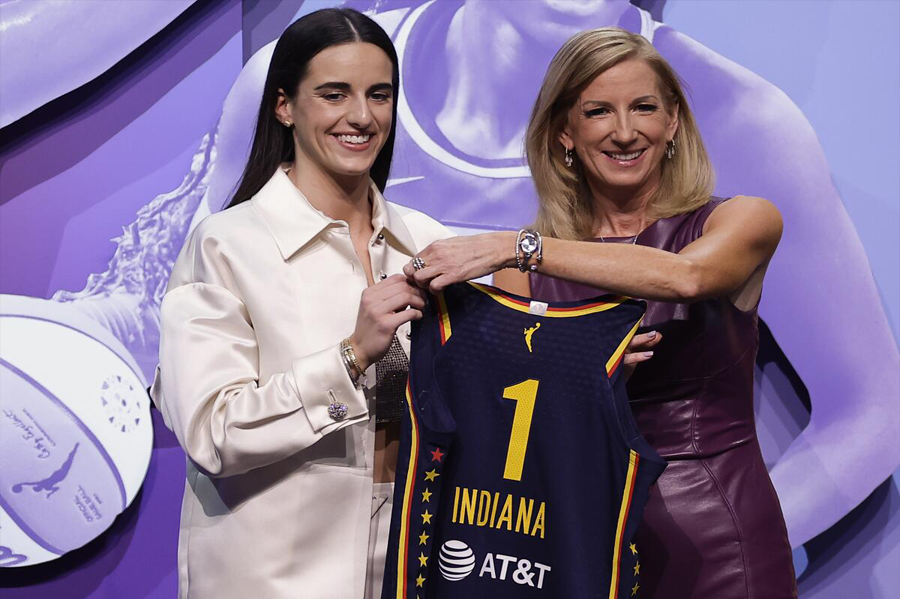
For now, Caitlin Clark remains a symbol of both promise and the need for progress in women’s basketball. The outcry from fans serves as a powerful reminder of the ongoing challenges faced by female athletes and the importance of advocating for fairness and equity in sports.


